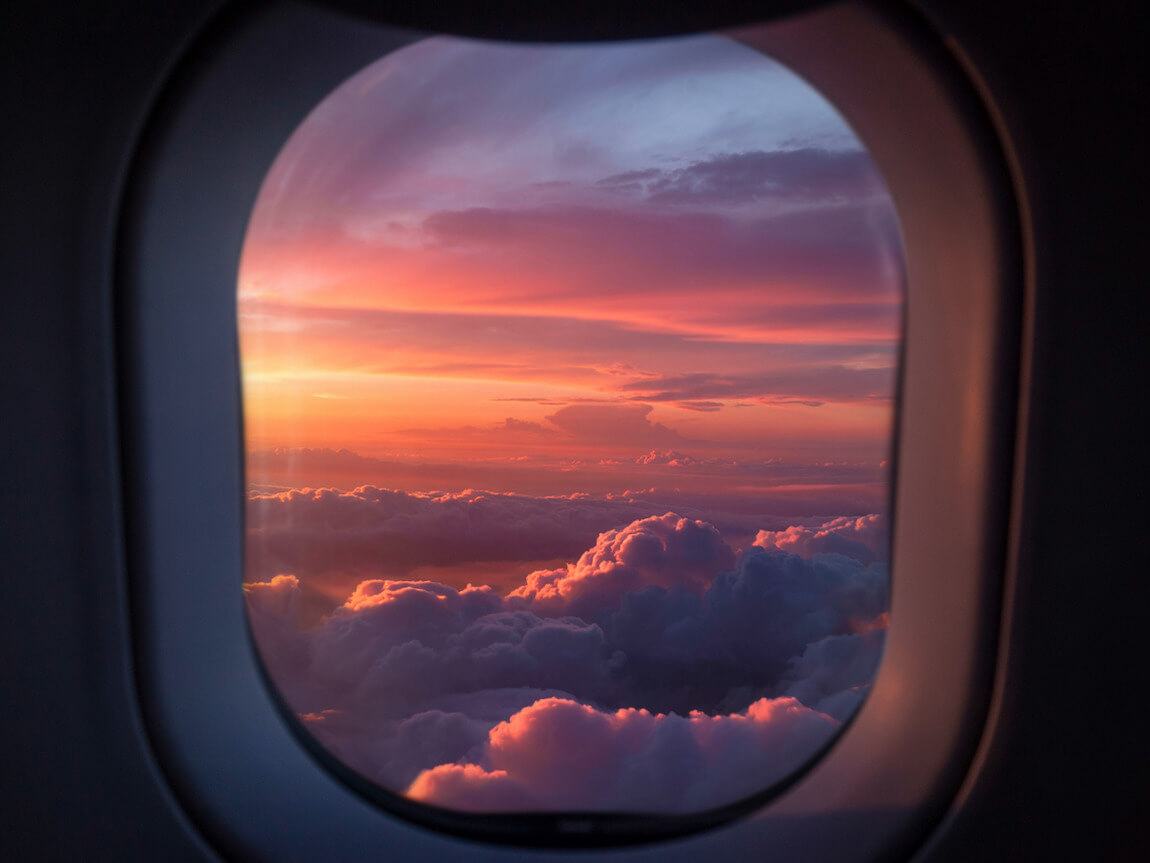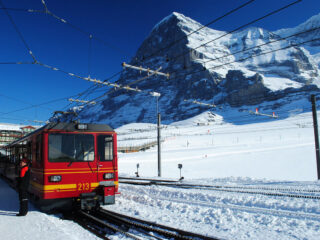Whether you’re a seasoned globetrotter or just planning your first big trip, these practical travel hacks will make your journey smoother, safer, and more enjoyable.
No fancy equipment needed, just simple tricks that actually work in real life!
1. Pack an Empty Water Bottle
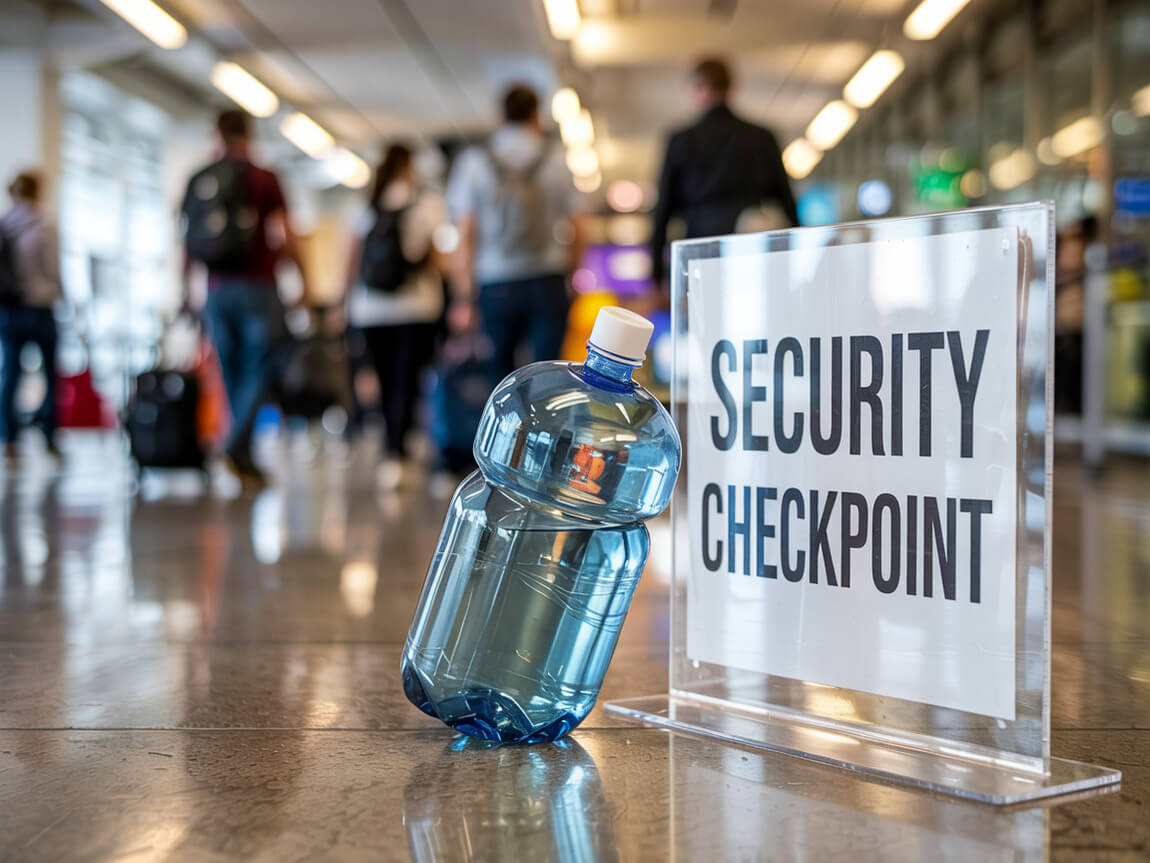
Staying hydrated while traveling is super important, but airport drinks can cost a fortune. Bring an empty reusable water bottle in your carry-on bag and sail through security without any issues.
Once you’re past the checkpoint, find a water fountain to fill it up completely free of charge. Not only will you save money throughout your trip, but having water readily available helps combat the dehydration that often comes with air travel and exploring new places on foot.
2. Put a Location Tracker in Checked Luggage
Baggage claim anxiety is a real thing that many travelers experience. Adding a small tracking device to your checked bag gives you incredible peace of mind during your journey.
You can monitor exactly where your suitcase is in real time through a simple app on your phone. If the airline sends your luggage to Honolulu while you’re headed to Houston, you’ll know immediately and can provide exact location details to the airline staff rather than waiting in the dark for them to figure it out.
3. Alert Credit and Debit Card Companies Before Travel
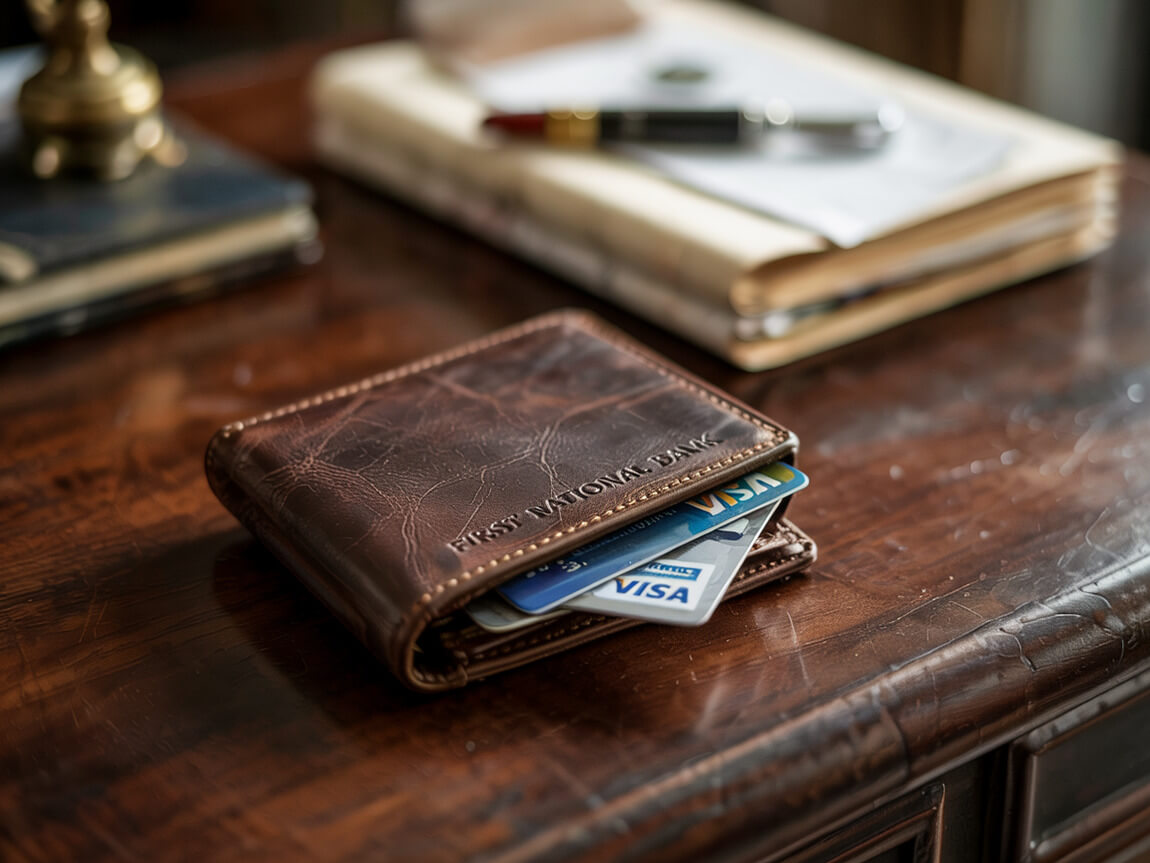
Nothing ruins a travel day faster than having your payment declined at a crucial moment. Many banks automatically flag foreign transactions as suspicious activity, which can lead to frozen accounts when you need them most.
Take a few minutes before your trip to notify your financial institutions about your travel dates and destinations. This quick preventative step can save you hours of stressful international phone calls trying to unlock your accounts while hungry, tired, or stuck without a way to pay for transportation.
4. Create a Default Packing List
The stress of wondering whether you remembered everything important for your trip can be completely eliminated with one simple system. Create a master packing list that includes all your regular travel essentials, from underwear and socks to chargers and medications.
Save this list on your phone or computer where you can access it before every trip. Each time you travel, simply copy the master list and adjust it based on your specific destination, season, and activities. You’ll never again experience that sinking feeling of realizing you forgot something crucial when you’re already miles from home.
5. Always Buy Travel Insurance
Travel insurance might seem like an unnecessary expense when you’re budgeting for a trip, but it’s actually one of the smartest investments you can make. Medical emergencies, trip cancellations, or lost luggage can quickly turn into financial disasters without proper coverage.
Insurance gives you the freedom to enjoy your adventure without worrying about what might go wrong. The small upfront cost provides incredible value and security, especially when traveling internationally where healthcare costs for foreigners can be astronomical.
6. Use Packing Cubes
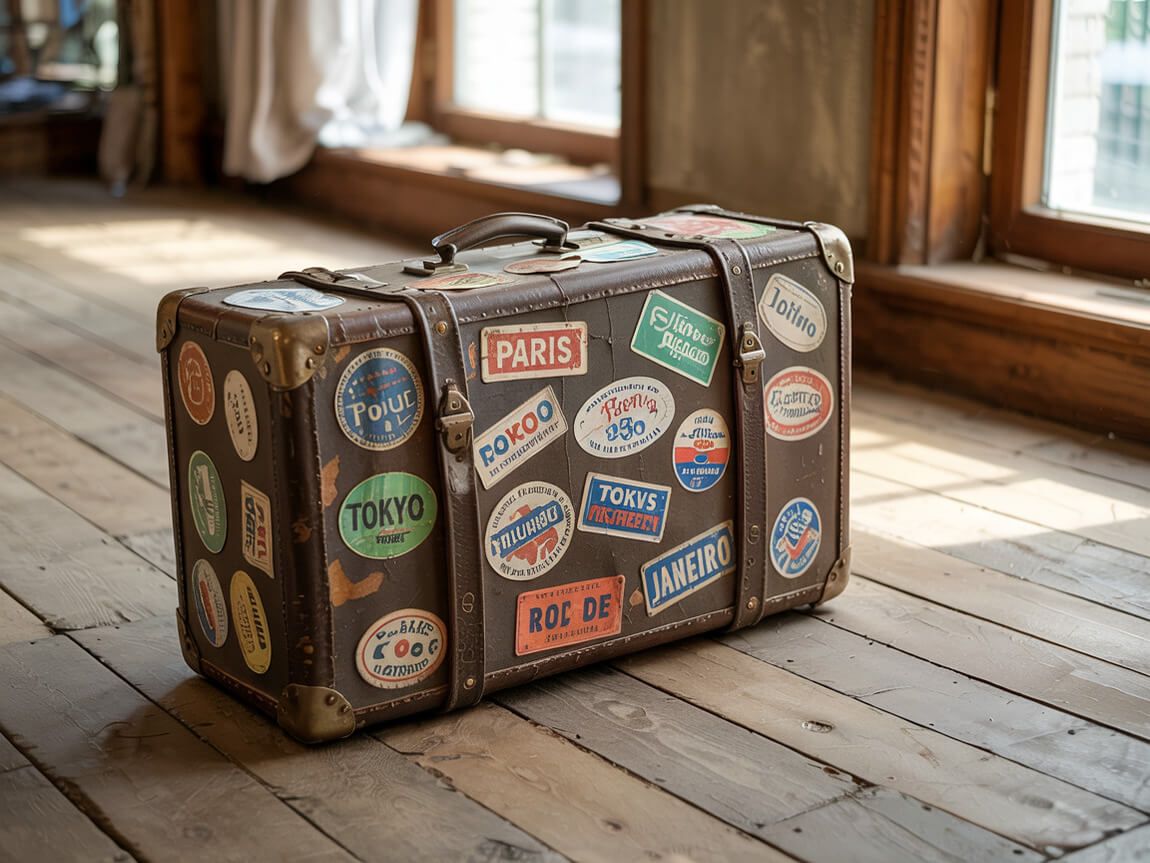
Imagine opening your suitcase during your trip and not having to dig through a jumbled mess to find what you need. Packing cubes transform your luggage from chaos into an organized system where everything has its place.
Sort your items by category or outfit into different cubes, making it easy to grab exactly what you need without disturbing everything else. These simple fabric organizers also compress your clothes to create more space in your bag. As an added bonus, unpacking at your destination becomes a breeze when everything is already sorted.
7. Download Offline Google Maps
Getting lost in an unfamiliar place can range from mildly annoying to genuinely scary, especially if you can’t access the internet. Before heading to your destination, download the maps you’ll need directly to your phone while you still have good wifi.
This simple preparation allows you to navigate confidently even without cell service or data. You can still see your location, find directions, and search for nearby places like restaurants and attractions completely offline. This hack is particularly valuable in remote areas or when traveling internationally without a data plan.
8. Only Ask for ATM Withdrawals in Local Currency
When using ATMs abroad, you’ll often see a tempting option to be charged in your home currency instead of the local one. This might seem helpful, but it’s actually a costly trap. Always choose to be charged in the local currency of the country you’re visiting.
When you select your home currency, the ATM applies its own conversion rate, which is almost always much worse than what your bank offers. This simple choice can save you 5-10% on every withdrawal you make during your trip. Those savings add up quickly, giving you more money for experiences rather than unnecessary fees.
9. Get a Hotel Business Card Immediately After Check-in
Communication barriers can make finding your way back to your accommodation surprisingly difficult in a foreign country. As soon as you check in to your hotel, grab a business card with the property’s name and address in the local language.
This small piece of paper becomes incredibly valuable when you need to show a taxi driver where to take you after a long day of exploring. It also helps if you get lost and need to ask locals for directions. For added safety, take a photo of the card with your phone as a backup in case you lose the physical card.
10. Buffer in Extra Time for Delays
We all want to maximize our vacation time, but cramming your schedule too tightly often leads to stress and disappointment. Plan your itinerary with generous time buffers between activities, especially for transportation connections.
A 30-minute flight delay can ruin an entire day if you haven’t built-in wiggle room. Aim for at least 90 minutes between connecting flights domestically and two to three hours for international connections. This extra cushion not only reduces anxiety but also allows you to handle unexpected situations calmly. Plus, if everything goes smoothly, you’ll have bonus time to grab a meal or explore the airport.
11. Get a No-Fee ATM Card for International Destinations
Standard bank cards can silently drain your travel budget with hidden fees every time you withdraw cash abroad. Foreign transaction fees, ATM operator fees, and poor exchange rates can add up to 5-10% of your money disappearing with each withdrawal.
Before your trip, look into cards specifically designed for international travelers that reimburse ATM fees and don’t charge for foreign transactions. These specialized cards can save you significant money during your travels, especially on longer trips or in countries where cash is still king. The few minutes it takes to apply for one of these cards can save you hundreds of dollars over time.
12. Roll Your Clothes Instead of Folding
The way you pack your clothes might seem like a small detail, but it can make a huge difference in your suitcase space and wrinkle management. Instead of folding your clothes flat, try rolling them tightly into compact cylinders.
This technique not only fits more items into your luggage but also reduces those annoying creases and wrinkles that come from traditional folding. Rolling works especially well for casual items like t-shirts, jeans, and underwear. You’ll be amazed at how much more you can fit into the same bag, potentially allowing you to downsize from a checked bag to just a carry-on for shorter trips.
13. Sign Up for Expedited Security Programs
Airport security lines can eat up hours of your travel day and start your trip on a stressful note. Membership in expedited security programs allows you to bypass the regular lines and keep your shoes on and electronics packed in many cases.
The modest annual fee pays for itself in saved time and reduced stress, especially if you fly more than a few times per year. Most programs require a background check and interview, but once approved, your membership typically lasts several years. The joy of walking past a 45-minute security line to a special 5-minute one never gets old.
14. Prioritize Early Morning Flights
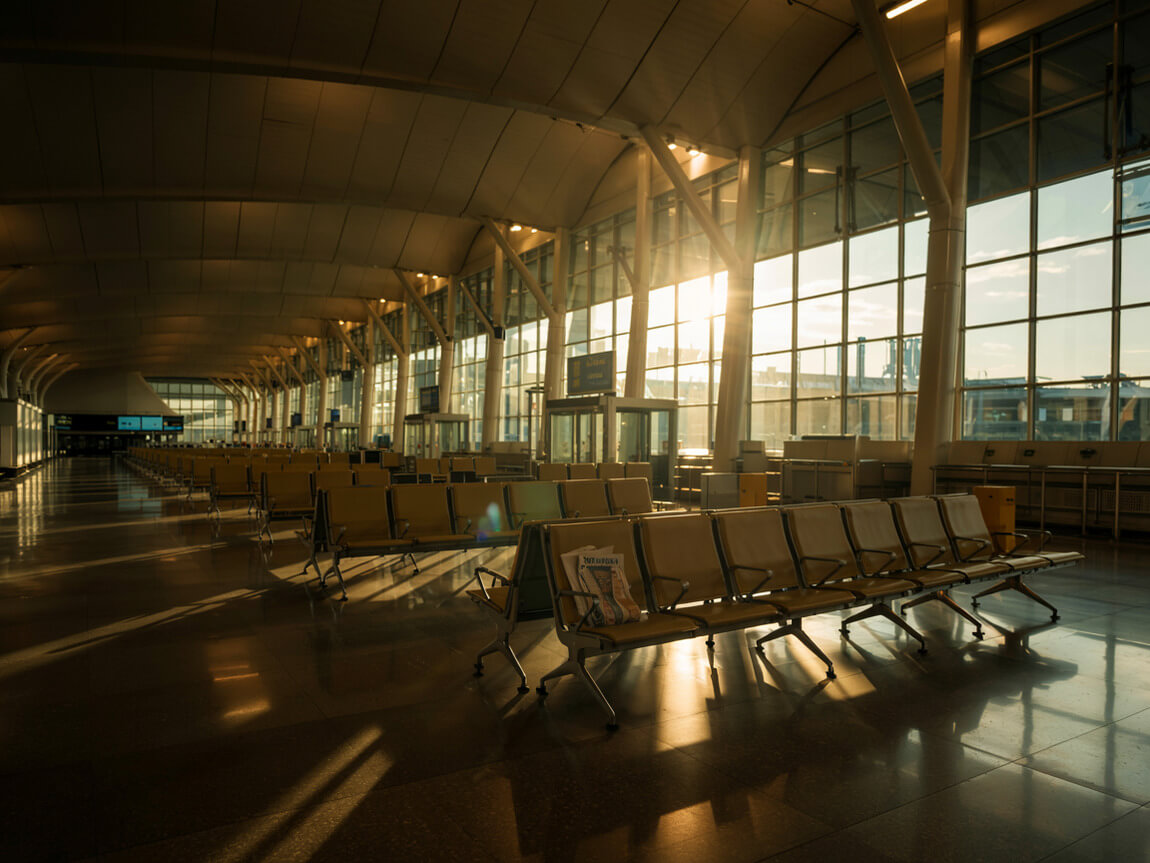
The time of day you choose to fly can significantly impact your entire travel experience. Early morning flights have several advantages that make the pre-dawn alarm worthwhile. Statistically, they experience fewer delays because the aircraft is already at the airport and air traffic is lighter.
Weather disruptions are also less common in the morning hours. Additionally, airports are generally quieter and less crowded first thing in the morning, making for a more pleasant experience overall. If your flight does happen to get canceled, you’ll have more rebooking options available throughout the rest of the day.
15. Take a Photo of Your Parked Car
This ridiculously simple hack has saved countless travelers from the frustration of hunting for their vehicles in massive airport parking lots after a trip. Before heading to the terminal, take a quick photo of your car and its surroundings, including the section letter, color coding, or any nearby landmarks.
Also snap a picture of the elevator or shuttle stop you use to enter the terminal. After a long trip when you’re tired and maybe jet-lagged, this visual reminder will lead you straight back to your car without the stress of wandering around pressing your key fob hoping to hear a beep.
16. Pack a Universal Adapter
Electrical outlets vary dramatically around the world, which can turn your essential devices into useless bricks without the right adapter. A good universal adapter works in multiple countries and accommodates various plug types.
Look for one that covers all major international standards so you don’t need to research specific outlet types for each destination. Some adapters also include USB ports, allowing you to charge multiple devices simultaneously. Remember that an adapter only changes the plug shape, not the voltage, so check whether your devices are dual voltage before connecting them in foreign countries.
17. Make Use of Local Grocery Stores and Supermarkets
Tourist areas are notorious for overpriced food and drinks that can quickly drain your travel budget. Instead of relying on convenience stores in hotel lobbies or busy tourist zones, seek out local supermarkets where residents shop.
You’ll find the same items at a fraction of the price, from water and snacks to fresh fruit and ready-made meals. Exploring local grocery stores also offers fascinating cultural insights into what people actually eat in the country you’re visiting. You might discover interesting local products to try that you’d never find in tourist shops. This approach not only saves money but enhances your travel experience.
18. Have Digital Copies of Important Documents
Lost or stolen passports, visas, and insurance papers can quickly derail your travel plans and create serious headaches. Before departure, scan or photograph all your essential travel documents and store them securely in the cloud or email them to yourself.
Include your passport, visa pages, travel insurance policy, driver’s license, and any reservation confirmations. In case of emergency, you’ll have immediate access to this critical information from any device with internet access. These digital copies can significantly speed up the replacement process at embassies or consulates and provide necessary details when filing police reports or insurance claims.
19. Check Google Street View Before Booking Accommodations
That charming hotel or apartment rental might look perfect in the carefully staged photos on booking sites, but what about the surrounding neighborhood? Before finalizing any accommodation, take a virtual walk around the area using street view maps.
This allows you to assess how safe the neighborhood appears, check proximity to public transportation, and spot potential issues like construction sites or noisy bars nearby. You can also verify the actual walking distance to attractions or restaurants that matter to you, rather than relying on overly optimistic descriptions from property listings. This five-minute research can prevent major disappointment upon arrival.
20. Keep a Small Microfiber Cloth Handy
Your phone and camera lenses collect fingerprints, dust, and smudges throughout your travels, silently degrading the quality of your vacation photos. Packing a small microfiber cloth takes up virtually no space but makes a huge difference in the clarity of your travel memories.
Unlike tissues or the edge of your shirt, microfiber cloths clean lenses without scratching them or leaving lint behind. This small accessory is especially valuable in humid environments where lenses fog up frequently or dusty locations where your camera needs regular cleaning. Clear, sharp photos will make you thankful for this tiny addition to your packing list.
21. Wear Compression Socks for Long Flights
Long periods of sitting during flights can lead to swollen ankles, aching legs, and in rare cases, more serious conditions like deep vein thrombosis. Compression socks apply gentle pressure to your lower legs, promoting better blood circulation during extended periods of immobility.
These special socks help prevent that uncomfortable swollen feeling when you finally stand up after a long flight. They come in various compression levels and styles, from subtle business socks to sporty designs. Your future self will thank you when you arrive at your destination with comfortable, non-puffy legs ready for exploring rather than needing recovery time.
22. Download Google Translate Languages for Offline Use
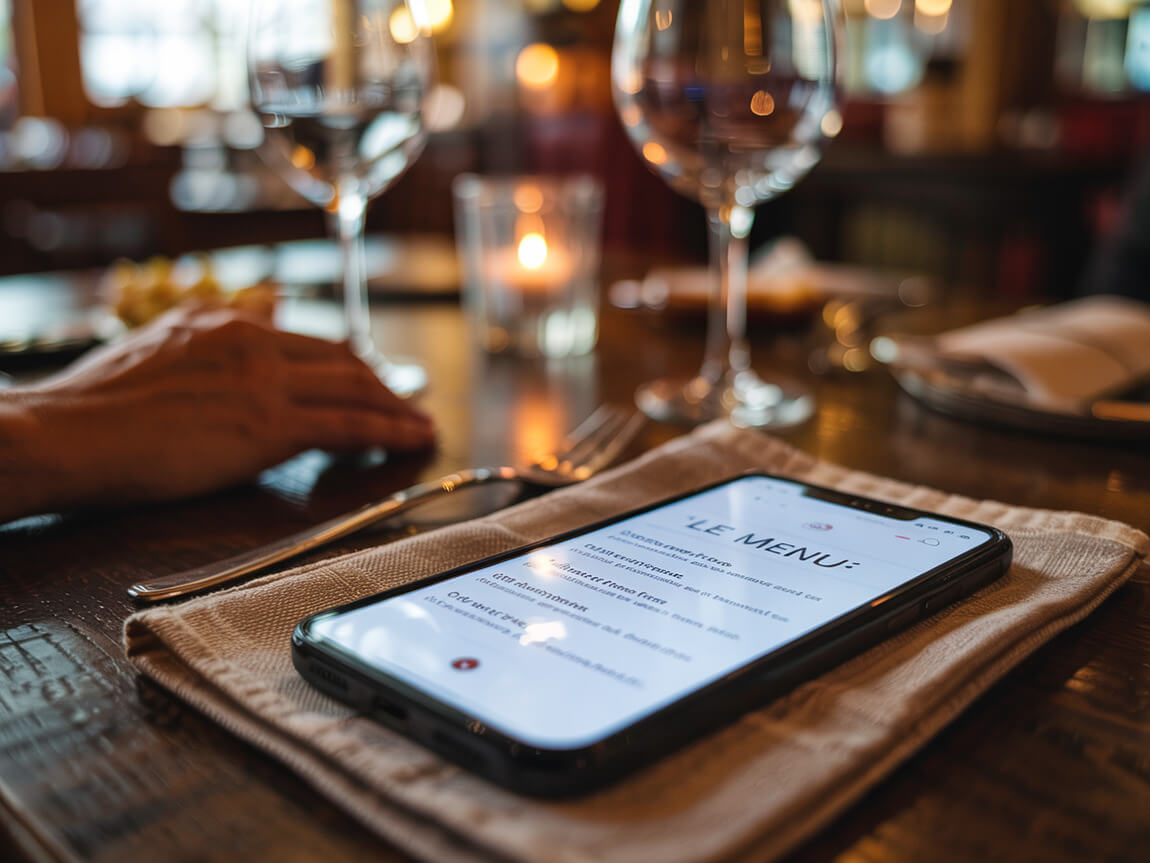
Language barriers can create stress and confusion, especially in countries where English isn’t widely spoken. A translation app on your phone becomes much more valuable when you download language packs before your trip.
This allows you to translate signs, menus, and conversations even without an internet connection. The camera function is particularly useful, allowing you to point your phone at text to see an instant translation overlay. This tool helps with practical matters like ordering food or finding bathrooms and can also facilitate meaningful connections with locals when basic communication would otherwise be impossible.
23. Find Free Toilets in Malls, Museums, and Libraries
Public restrooms in tourist areas often charge fees that add up quickly, especially when traveling with family. Instead of paying for every bathroom break, develop a mental map of reliable free toilet locations.
Shopping malls, museums, large libraries, and major transportation hubs typically offer clean facilities without charge. Hotel lobbies can also work if you walk in confidently like a guest. Learning this skill saves you both money and the stress of searching desperately for a bathroom in unfamiliar surroundings. As a bonus, these facilities are usually cleaner and better maintained than paid public toilets in many cities.
24. Use Flight Comparison Tools to Find Cheap Deals
The difference in flight prices can be hundreds of dollars depending on when and how you book. Instead of going directly to airline websites, start your search with flight comparison tools that show options across multiple airlines simultaneously.
These platforms allow you to easily compare prices across different dates, helping you spot patterns in pricing. Many tools offer fare alerts that notify you when prices drop for routes you’re interested in. Being flexible with your travel dates, even by just a day or two, often reveals significantly cheaper options. The money saved can be put toward experiences at your destination instead.
25. Bring a Portable Charger
Modern travel relies heavily on electronic devices for navigation, photography, translation, and entertainment. A dead phone battery can leave you literally lost in an unfamiliar place.
A good portable charger provides the security of knowing you can recharge your devices anywhere, even when wall outlets aren’t available. This becomes especially important when using battery-draining navigation apps all day or taking lots of photos. Look for a charger with enough capacity to fully recharge your phone multiple times. This small investment provides tremendous peace of mind, particularly in remote areas or during long travel days when access to outlets is limited.
